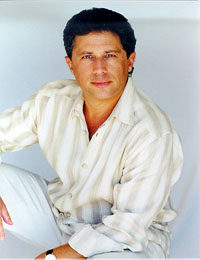 He wept. I was silent. I had seen him approach this threshold before, but not cross it. Now that he had, the real issues were clear, and they had nothing to do with the company or his "leadership." The issues were sadness, despair, loneliness, and fear. I suspect that these are often the real concerns everywhere, and that the "problems" we want to fix are actually just symptoms of these more elemental issues.
He wept. I was silent. I had seen him approach this threshold before, but not cross it. Now that he had, the real issues were clear, and they had nothing to do with the company or his "leadership." The issues were sadness, despair, loneliness, and fear. I suspect that these are often the real concerns everywhere, and that the "problems" we want to fix are actually just symptoms of these more elemental issues.
Later, I remembered a poem by Kabir, a 15th Century Indian mystic:
"We sense that there is some sort of spirit that loves birds and the animals and the ants-perhaps the same one who gave a radiance to you in your mother's womb. Is it logical you would be walking around entirely orphaned now? The truth is, you turned away yourself, and decided to go into the dark alone. You've forgotten what you once knew, and that's why everything you do has some weird failure in it."
There are "weird failures" all around us, and we all suffer because of them. We usually externalize these failures and then try to solve the problems. We give speeches, rattle our sabers, downsize, cut spending, send food, sell arms. The problems remain. No one really knows what to do. The more we try to solve the problems, the more the weird failures seem to proliferate. Why is this?
Someone once suggested that all of our problems stem from the fact that we can't sit quietly without anxiety, doing nothing. An old Zen poem elegantly states, "Sitting quietly, doing nothing, Spring comes, and the grass grows by itself."
A few years ago, I was in retreat with a group of executives. We were resting beneath ancient redwoods in the Santa Cruz mountains. A vice-president, in his mid-fifties and a former Marine Corps pilot, told of how, when he was fifteen, he was suddenly transported out of his body. He experienced himself as pure light and was intensely joyful. He felt that he was actually a part of all living things. He said, struggling for the words and with soft tears forming in his eyes, that this "light body" was the body of everything and that love was the universal spirit of life, binding every living thing together as one.
He said it was the most significant experience of his life, though he had not spoken of it for over forty years. He sat quietly for a bit, and then he said that he hadn't known how to fit it into the rest of his life. So he had gone on without it, heavier and sadder.
I think this is what Kabir was talking about. There is something we have all forgotten, and that forgetfulness makes us heavy and sad. It makes us anxious and fearful and angry. I think that the weird failures have to do with forgetting who we are, with turning away from the spirit which gives us radiance. This alienation causes us to suffer, which appears in the world as chaos. The chaos in the world, whether it touches us directly or not, is our chaos. We own it. It persists because we do not face ourselves.
"Each of us must be the change we want to see in the world," said Gandhi. In order to be the change we want to see in the world, we must face ourselves and know ourselves as we are, in essence.
May everyone be at peace, in love, and know their most perfect Self.
Robert Rabbin is an author, speaker, and advisor. He can be reached via e-mail at robrabbin@infoasis.com, or by writing: 2629 Manhattan Ave., Ste. 192, Hermosa Beach, CA 90254. His new book, The Sacred Hub (The Crossing Press, ISBN: 0-89594-837-0), is available in bookstores or from the publisher at (800) 777-1048.
"Echoes in Silence" is a bi-weekly column by Robert Rabbin--author, speaker, and advisor--who has spend thirty years using self-inquiry as a means to explore the true nature of self, mind, reality, and consciousness.
His new book, The Sacred Hub (The Crossing Press, ISBN: 0-89594-837-0), is available through the bookstores nationwide.